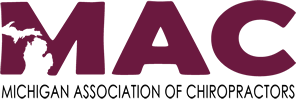Complete Story
06/08/2017
CPAN Announces Reforms to Fix Michigan’s Auto No-Fault System, Protect Accident Victims
Reforms Will Improve Auto Insurance Efficiency, Transparency, Fairness and Accountability
Medical providers, brain injury advocates and legal experts joined the Coalition Protecting Auto No-Fault (CPAN) today to reveal the organization’s proposals to bring much needed efficiency, transparency, fairness and accountability to Michigan’s auto no-fault system. The MAC is a founding and Executive Committee member of CPAN. MAC Government Relations Director Carl Alden serves as the organization’s Treasurer.
“Michigan’s no-fault laws are critical to the care and rehabilitation of tens of thousands of auto accident victims every year, but we also know the system is not perfect. There are a number of issues that need to be addressed and we are committed to finding the appropriate solutions,” said CPAN president, John Cornack. “The reforms CPAN is proposing are specific, surgical reforms that will improve Michigan’s auto insurance system while also guaranteeing that our state’s most seriously injured people will still be able to receive the care they need.”
CPAN’s list of 24 reforms can broadly be broken down into two main categories: those that promote premium reductions and costs savings, and those that increase fairness.
Reforms that promote cost savings include:
- Adopt a fee schedule for health care providers treating auto accident victims
- Cap hourly rates for family-provided attendant care
- Aggressively tackle fraud and claims handling abuse
“CPAN has continuously been a staunch advocate for the creation of a balanced fraud authority, and insurance companies have been asking lawmakers for several years to adopt cost containment measures, including fee schedules and attendant care, so we believe we have landed on some strong reforms where we can find common ground and make real change happen in Lansing this year,” said Cornack.
Cornack notes that CPAN had aggressively opposed both fee schedules and caps on attendant care in previous years. By agreeing to a reasonable fee schedule based on 185 percent of the Workers Compensation schedule, CPAN aims to prevent what has become a standard insurance company practice of delaying payments and underpaying health care providers. Under CPAN’s proposal, Level 1 trauma centers would not be subject to an auto no-fault fee schedule.
Reforms that promote fairness include:
- Stop non-driving rating factors, such as credit scores, from impacting insurance rates
- Require auto insurers to obtain prior authorization before implementing a rate increase
- Subject the Michigan Catastrophic Claims Association (MCCA) to Michigan’s transparency laws
“Credit scores and other non-driving factors have been proven to disproportionately impact minorities and low-income drivers,” said Brain Injury Association of Michigan President Tom Constand. “And given that Michigan law requires all drivers to purchase auto insurance, we believe the state should review and authorize rate increases before they take effect, just like they do with our utility bills.”
The MCCA was created by Michigan Legislature and serves as a reinsurance fund that reimburses auto insurance companies for personal injury claims exceeding $545,000. Each Michigan driver currently is required to pay $160 annually per vehicle to fund the MCCA, and it currently holds about $20 billion in assets. CPAN currently has a lawsuit in the Michigan Supreme Court that would force the MCCA to open its ratemaking data to public scrutiny.
“Drivers have no choice but to pay into the MCCA each year, but they also have no idea how those rates are set and no way to determine whether the fund is being appropriately managed,” said Cornack. “Our reforms will lift the shroud of secrecy at the MCCA and give consumers a better idea of how their rates are set.”
The full details of CPAN’s 24 auto no-fault insurance reforms are available on its website at ProtectNoFault.org. The organization and its members plan to work in a bi-partisan manner with both lawmakers and insurance companies introduce and pass its reforms by the end of this year.


